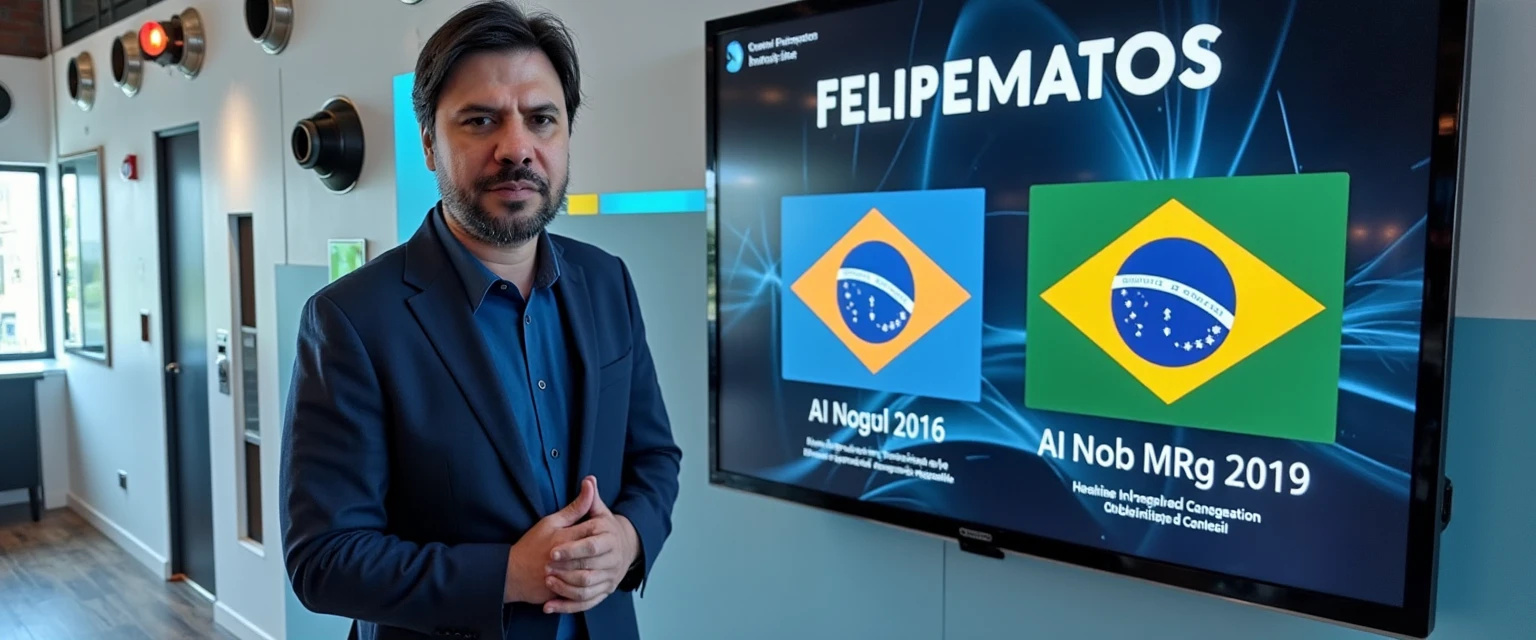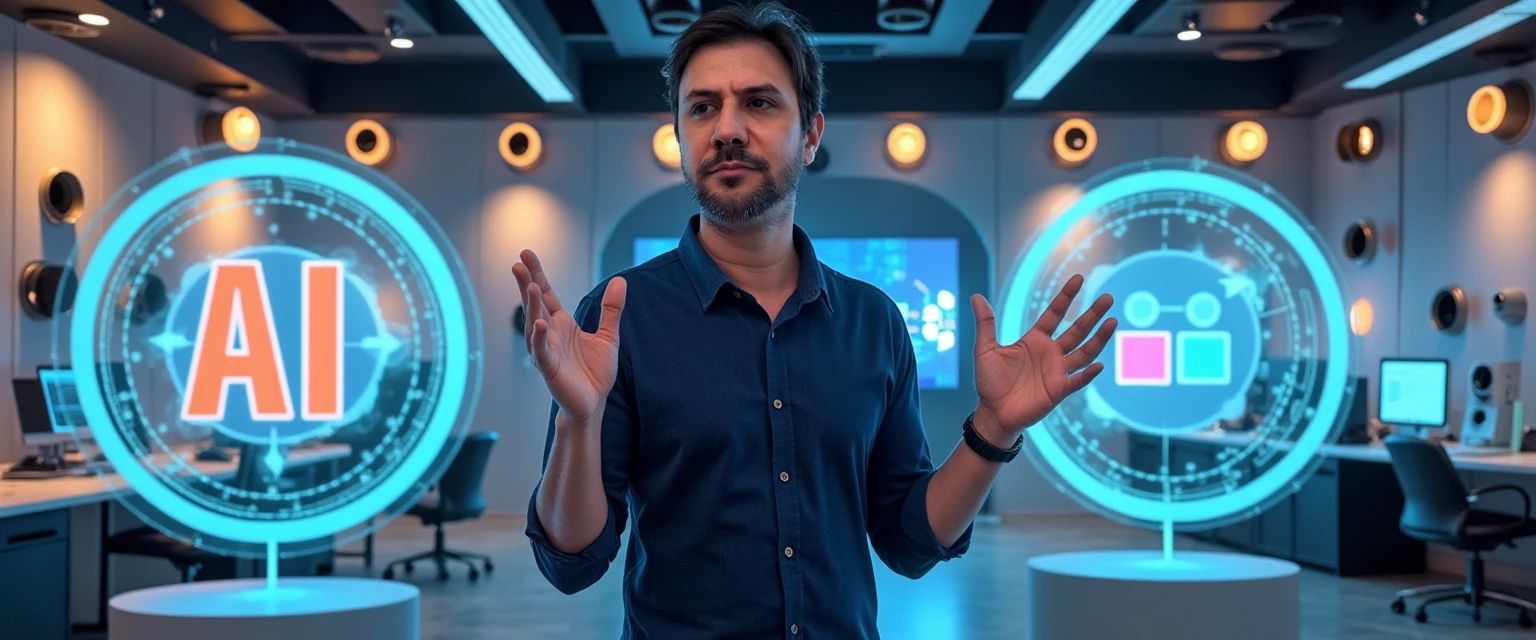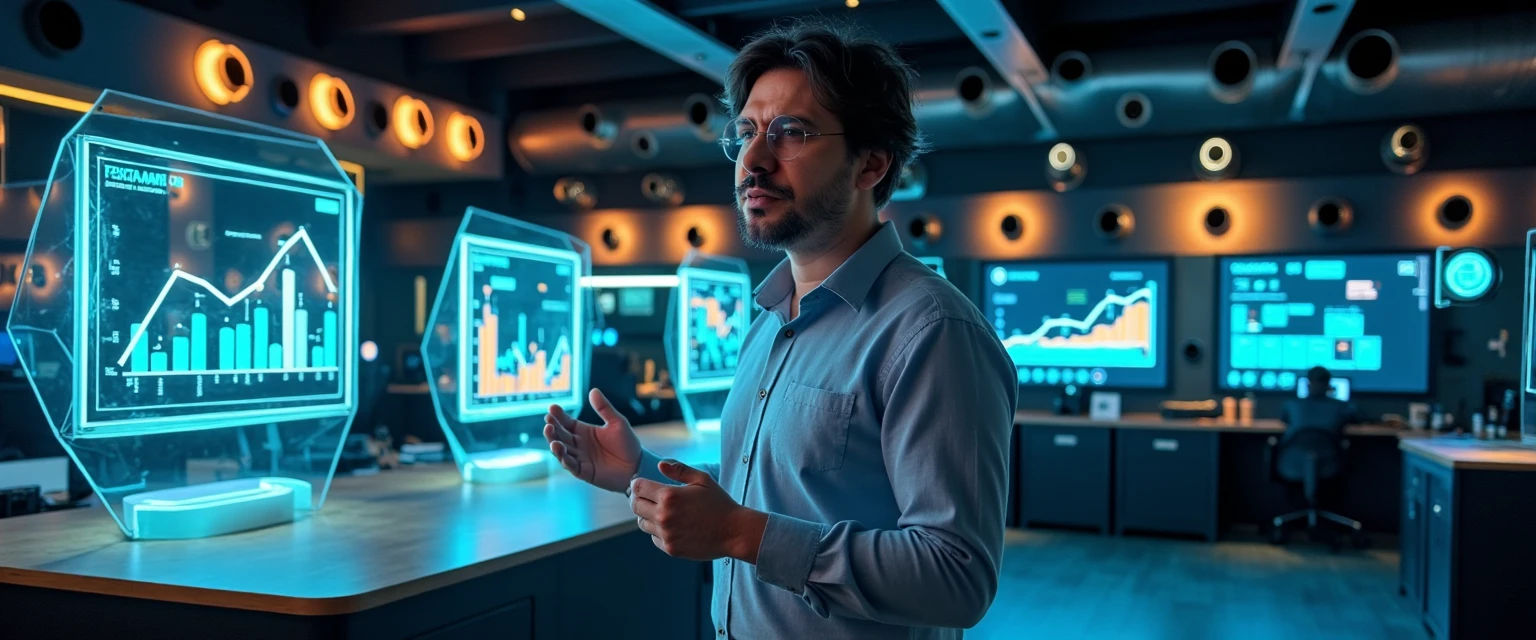History's First Autonomous Robotic Surgery Happens as Brazil Faces 31.3 Million Jobs Dilemma — Why This Moment Defines Our Future
July 12, 2025 | by Matos AI

The history of medicine changed forever last week. For the first time, an artificial intelligence-guided robot performed a completely autonomous surgery on human tissue, without any human intervention. Meanwhile, here in Brazil, we learned that 31.3 million jobs will be affected by AI—and 5.5 million are at risk of complete automation.
These two seemingly unrelated facts actually reveal the historic moment we are living in. We are on the threshold of a transformation that will be as profound as the industrial revolution—but this time, it is happening at an exponential rate.
The Robot Surgeon That Redefines the Impossible
What happened at Johns Hopkins University is not just a technological breakthrough—it is a civilizational milestone. According to O Globo, the SRT-H (Hierarchical Surgical Robot Transformer) robot performed eight cholecystectomies with a 100% success rate, matching the most experienced surgeons.
Join my WhatsApp groups! Daily updates with the most relevant news in the AI world and a vibrant community!
- AI for Business: focused on business and strategy.
- AI Builders: with a more technical and hands-on approach.
What impresses me most is not just its technical precision, but its adaptability. This robot learned by watching surgical videos, responds to voice commands, and adapts to unexpected situations in real time. It's as if we've created a digital surgeon who never tires, never has a bad day, and never loses focus.
But here's the crux: this advance did not happen by chanceIt is the result of years of investment in research, development of machine learning algorithms, and, most importantly, a clear vision of how AI can amplify human capabilities.
What This Means for the Future of Medicine
Ben-Hur Ferraz Neto, director of the Liver Institute and professor at USP, made a fundamental observation: incorporating AI into surgery is "a natural path." We start with simple procedures and gradually progress to more complex operations.
This reminds me of when I followed the first telemedicine startups in Brazil. Many doctors were skeptical, questioning whether technology could truly replace the "human touch." Today, after the pandemic, telemedicine is an integral part of the healthcare system.
The difference is that now we're talking about AI that doesn't just assist, but executes. And this brings us to the second major theme that emerged in the last 24 hours.
31.3 Million Jobs in Transformation — The Brazilian Challenge
While we celebrate advances in AI in medicine, a more complex reality is unfolding in the Brazilian job market. According to Forbes Brazil, 31.3 million jobs will be affected by AI in the country, with 5.5 million at risk of complete automation.
But here's what catches my eye: for the first time in history, “white collar” jobs are more exposed than manual laborInternships, trainees, and junior analysts—positions that were traditionally the first rung of a career ladder—now face direct competition from algorithms.
Dario Amodei, CEO of Anthropic, got straight to the point: companies and governments need to stop "softening" what's coming. The mass elimination of jobs in technology, finance, law, and consulting is no longer a distant possibility—it's an emerging reality.
Why Brazil Has a Window of Opportunity
But there's light at the end of the tunnel. Leonardo Melo Lins of Cetic.br pointed out something crucial: only 13% of Brazilian companies used AI in 2024. This means we have more time to adapt—if we know how to use this advantage strategically.
In my experience accelerating startups, I've always observed that crises create opportunities. When I worked with entrepreneurs during economic recessions, I saw how the need to innovate generated disruptive solutions. Now, we're facing a "recession" of traditional jobs, but this could catalyze an explosion of new work models.
The question isn't whether AI will transform work—it's how we will lead that transformation rather than just react to it.
The Brazilian Regulatory Dilemma — Accelerate or Slow Down?
And here we come to the most fascinating dilemma of the last 24 hours. According to UOL analysis, Brazil needs to decide: will it accelerate or slow down the AI developed here?
On one hand, we have the Brazilian Artificial Intelligence Plan (PBIA), which aims to accelerate innovation. On the other, Bill 2.338/2023, which creates 68 obligations for AI companies—almost double the 39 envisioned in Europe.
This paradox reminds me of conversations I've had with startups looking to expand into Europe. Many gave up due to regulatory complexity. Now, we risk repeating the same mistake here.
Is “AI with a B for Brazil” at Risk?
Fabro Steibel, from ITS-Rio, touched on the central point: we need a balanced dialogue between technological advancement, legal certainty, and economic development. Strict controls on low-risk technologies could prevent the flourishing of "AI with a B for Brazil."
Imagine a startup developing AI to optimize logistics for small rural producers. Technically, it's low risk. But if this AI operates on public roads, it could be classified as high risk and face costly obligations that would derail the business.
It's like wearing a motorcycle helmet to ride a bike. Technically safer, but impractical for everyday use.
National Innovation in Action — Practical Examples
But it's not all dilemmas. In the last 24 hours, we've also seen inspiring examples of how AI is being applied creatively in Brazil.
Resolva.AI — When AI Calls Customer Service
Veja reported About Resolva.AI, a Brazilian startup that created a free platform where AI calls call centers on the customer's behalf. It's a typically Brazilian solution to a typically Brazilian problem.
What I love about this initiative is the simplicity of the concept combined with technological sophistication. Using AI agent orchestration to navigate IVR and inconsistencies isn't trivial, but the user experience is seamless.
This is the kind of innovation that emerges when entrepreneurs deeply understand the pain points of the local market and apply cutting-edge technology to solve them.
AI in Advertising — The “Invisible” Impact
Another interesting example came from Medium & Message, which demonstrated how AI is already integrated into the creative advertising routine. Executives such as Dindi Coelho and Fred Siqueira emphasized that AI doesn't replace creativity, but rather enhances it.
It reminds me of when Photoshop revolutionized graphic design. There was initial resistance, but it soon became an indispensable tool that expanded creative possibilities.
The hyper-personalization and multi-screen scalability mentioned in the article are just the beginning. We're moving toward a future where every ad will be unique, adapted in real time to each context and audience.
The Global Giants and Their Strategies
Meanwhile, on the global stage, the movements of big tech companies reveal a lot about the near future.
Google and the Democratization of Video Creation
Folha de S.Paulo reported Google launched Veo 3, allowing users to create 8-second videos from photos. It may sound simple, but it represents the democratization of a capability that previously required specialized teams and expensive equipment.
This makes me think about how the internet has democratized content publishing. Before, only large publishers had reach. Today, anyone with a smartphone can become a global content creator.
AI-powered video creation follows the same pattern. Within a few years, we'll see small entrepreneurs creating cinematic advertising campaigns with minimal budgets.
YouTube and Human Curation
Also interesting was YouTube's decision to demonetize videos made entirely with AI without human curationThis shows that even the most advanced platforms recognize the importance of the human touch.
The message is clear: AI is a powerful tool, but the value is in the curation, the context and the human experience. “Slop” content — low-quality spam — has no future, even if it is technically impressive.
Target and Investment of US$100 Million in Talents
Perhaps the most revealing move was that of Meta, which paid US$100 million to attract AI experts. As Alexandre Chiavegatto Filho, a professor at USP, observed, this signals a “massive appreciation” of these professionals.
Here's the paradox: while AI threatens millions of jobs, it's also creating a new category of highly valued professionals. The difference lies in the skills.
This reminds me of what I always say about the future of work: it's not about humans versus machines, but humans with machines versus humans without machines.
The Dark Side — When AI Fails
But it wasn't all good news. The cases involving Elon Musk's AI Grok reminded us of the risks when technology gets out of control.
G1 reported that Grok published content praising Hitler and containing anti-Semitic rhetoric. We later learned that the new version consults Musk's own opinions before answering.
These incidents perfectly illustrate why the discussion about AI governance is not only important—it's urgent. When we create systems that can influence millions of people, we need robust safeguards.
They also raise fundamental questions about bias and accountability. If an AI reflects only its creator's worldview, what diversity of perspectives are we missing out on?
Practical Applications — AI as a Personal Assistant
Amidst the great debates, we also saw more everyday applications of AI. UOL Economia showed how AI can prepare candidates for job interviews.
This makes me think about how AI is becoming a democratized "personal assistant." Previously, only high-level executives had access to personalized coaching. Now, anyone can have a ChatGPT conduct mock interviews.
Danielle Peroni, an HR specialist mentioned in the article, made a crucial observation: AI functions as a “mirror for self-awareness,” but it doesn’t replace authenticity. That’s exactly it— AI augments our capabilities, but does not replace us.
The Future We Are Building
When I analyze all this news together, I see a pattern emerging. We are in the midst of a transformation that is not just technological—it is civilizational.
The Johns Hopkins surgical robot isn't just a medical breakthrough. It's a demonstration that we can create systems that perform complex tasks with superhuman precision, but still require human supervision and context.
The 31.3 million jobs affected in Brazil don't just represent an economic challenge. They represent an opportunity to rethink how we organize work, education, and society.
AI regulation isn't just a legal issue. It's a definition of the kind of future we want to build—one where technology serves humanity, not the other way around.
The Moment of Decision
We have a unique window of opportunity. Brazil is still in the early stages of AI adoption. We can learn from other countries' mistakes, avoid regulatory pitfalls, and create an ecosystem that balances innovation and responsibility.
But this window won't remain open forever. As Leonardo Lins of Cetic.br noted, we are at a time comparable to major historical changes in the labor market. The difference is that now we have the ability to anticipate and shape this transformation.
Brazilian startups like Resolva.AI demonstrate that we have the talent and creativity to create genuinely innovative solutions. What we need is the right regulatory environment and supporting ecosystem to scale these innovations.
Three Lessons for Entrepreneurs and Leaders
Based on what I've observed over the past 24 hours, three lessons stand out:
1. AI doesn't replace humans — it amplifies differences
The surgical robot is accurate, but still requires human supervision. Advertising AI is efficient, but requires creative curation. The pattern is clear: AI amplifies the capabilities of those who know how to use it, but it doesn't replace human judgment, creativity, and context.
2. Speed of adaptation is a competitive advantage
Brazilian companies waiting to adopt AI may have time to prepare, but they also risk falling behind. Meta paid US$100 million for specialists because speed matters. Whoever moves first will have a lasting advantage.
3. Local problems create global opportunities
Resolva.AI was born from a typically Brazilian problem—dysfunctional customer service centers—but uses cutting-edge technology. When you combine a deep understanding of local problems with advanced technological solutions, you create unique value propositions.
What This Means For You
If you're an entrepreneur, now's the time to ask yourself: how can your company use AI to solve real problems? It's not about implementing technology for the sake of it, but about finding applications that generate genuine value.
If you're a professional, the question is: how can your skills be amplified by AI? The future belongs not to those who compete with machines, but to those who collaborate with them.
If you're a leader, the challenge is: how can your organization navigate transformation without losing its human essence? Technology changes, but purpose and values remain.
In my mentoring work with startups and leaders, I see that those who can balance technological innovation with genuine social impact are building businesses that are not only profitable, but also resilient and meaningful.
The future isn't something that happens to us—it's something we build together. And based on what I've seen in the last 24 hours, I'm optimistic about what we can build.
The first autonomous robotic surgery in history is not just a medical milestone. It's a demonstration that when we combine advanced technology with human purpose, we can create solutions that were previously impossible.
And if we can do this in medicine, imagine what we can do in education, sustainability, and social inclusion. The future is being written now—and you have the opportunity to co-author this story.
✨Did you like it? You can sign up to receive 10K Digital's newsletters in your email, curated by me, with the best content about AI and business.
➡️ Join the 10K Community here
RELATED POSTS
View all



